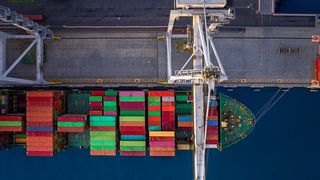China’s geoeconomic tactics are stymieing its bid for influence in the Indo-Pacific and presents a strategic weakness that Australia and the United States need to exploit, according to new research from the United States Studies Centre’s (USSC) newly refocused International Economy Program.
In his latest report, A geoeconomic alliance: The potential and limits of economic statecraft, USSC Director of International Economy Dr Stephen Kirchner argues China’s use of geoeconomic policy instruments are unlikely to result in significant gains in geopolitical power relative to its growing military power and may ultimately undermine their influence.
“China’s prioritisation of geoeconomic policies may also reflect constraints on its ability to pursue its objectives through military, diplomatic and other policy instruments,” says Dr Kirchner, “and if the United States properly leverages its enormous geoeconomic assets and potential, it can seize this opportunity to pull ahead in the race.”
The report contends that in response, US and Australian policymakers should avoid the impulse to allow security concerns to dominate economic considerations while remaining cognizant that domestic US politics will remain a major constraint on developing an alliance agenda for geoeconomics cooperation.
The report provides insights on how the historical experiences of geoeconomic statecraft in the Cold War and post-Cold War periods can be considered in the contemporary context of US-China strategic rivalry. Dr Kirchner outlines the potential and limits of geoeconomic statecraft in the context of the alliance and hands down a series of recommendations to sure up Australia and the United States regional influence.
“If China makes few geopolitical gains on the back of its economic coercion and the US and allies can successfully diversify and secure their economic relationships through the alliance network,” Dr Kirchner continues, “then China’s economic statecraft will have been substantially neutralised.”
A geoeconomic alliance: The potential and limits of economic statecraft is now available for download.
To book a briefing with Dr Kirchner, please email us at ussc.media@sydney.edu.au
Key points
- China’s use of geoeconomic policy instruments has become a major concern for Australian policymakers. However, its use of economic statecraft has mostly been counter-productive in advancing its geopolitical interests.
- Australia and the United States have increased cooperation in some geoeconomic policy areas, most notably in relation to defence industry, technology and critical minerals, but it remains an underdeveloped element of the alliance relationship, reflecting its foundations in a security treaty that is silent on economic issues.
- Domestic economic priorities have given the United States an inward focus that will act as a constraint on the Biden administration in advancing a geoeconomic agenda that works cooperatively with allies.
- A major priority for Australian policymakers should be to engage the United States with the World Trade Organization reform process and encourage the United States to further invest in the international and regional trade promotion and trade defence architecture. Trade expansion and diversification among allies will better promote economic resilience than trade restrictions aimed at China.
- Policymakers shouldn’t allow security concerns to trump or dominate economic considerations. Geoeconomics may serve as an excuse to substitute geopolitics for economics rather than balancing or reconciling the two perspectives.
Media enquiries
T +61 2 9114 2622
E ussc.media@sydney.edu.au



